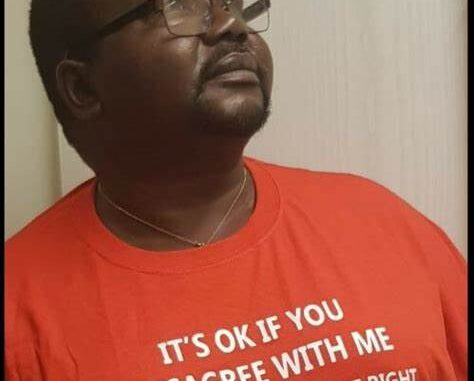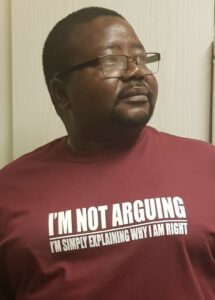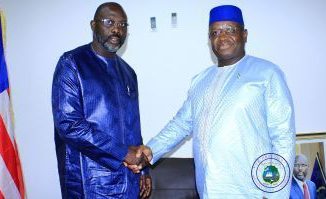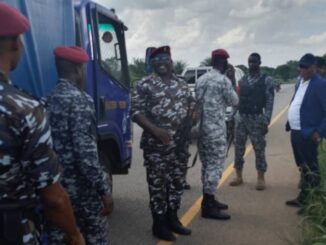
In Politics, Absurdity Is Not a Handicap

With Africa, and especially West Africa facing democratic backsliding and a surge in military coups, the ongoing crisis in Senegal, a country regarded as one of West Africa’s most stable democracies could not have come at a worse time. Against the backdrop of arbitrary arrests of opposition figures, serious human rights abuses and the use of excessive force by the security forces to create a restrictive civic space, it was inevitable that Senegal would witness violent protests. After several months of gas lighting by President Macky Sall, who has been in power for the last twelve years, his government lit the blue torch paper when it rubberstamped the President’s decision to postpone the elections scheduled for February 25 last Monday. The timing could not have been a better recipe for organised chaos.
President Macky Sall’s tenure was due to expire on April 2nd this year. With the unanimous blessing of the country’s National Assembly, it would have been rich, to expect foxes to vote for the welfare of chickens. Many see the postponement as the climax to Macky Sall’s attempt to not only constrict the political playing field by disqualifying and imprisoning political opponents, but also as an audacious abuse of the constitution, an attempt to asphyxiate opposition and a ruse to hold on to power. Sall’s excuse to postpone the elections to December 15th was that he was “concerned about the unity of the nation. He said, “my fight and greatest pride are really to lead you to victory and to continue our economic policy for the benefit of our populations”, adding “the challenge of the moment is first of all to united. United, there can be no political force that can face BBY (Benno Bokk Yaakar- his coalition party)”
Against the backdrop of a recent spate of military coup d’etats in the West African region, many conclude that the political charade taking place in Senegal qualifies as a constitutional coup. Meanwhile, calls for the regional bodies like The African Union (AU) and The Economic Community of West African States (ECOWAS) to take responsibility in dealing with the situation are intensifying. The constitution was amended in 2016 after President Macky Sall came to power in 2012. The amendment provided for a maximum presidential term of two years. President Sall was later re-elected in 2019 and his supporters allegedly floated the idea of a third term. Their argument was that since Sall had been in power before the two-term presidential limit was included into the constitution in 2016, therefore his first term in 2012 did not count or apply.
Have you worked out the illogical logic of African politics yet? According to Pythagoras Theorem Senegal style, 2016 minus 2012 = void. Does this remind you of someone you used to know somewhere too? Thanks to widespread political and civil opposition, Macky was forced to begrudgingly announce that “my decision is not to be a candidate in the presidential election even though the constitution gives me the right to do so”. In contrast however, many see his decision to postpone the election as a ploy to buy enough time to handpick a post Macky Sall-friendly successor. Do these guys sing from the same hymn sheet?
The current saga in Senegal has been fermented by Sall’s slash and burn approach to weed out any serious opposition as politicians like Ousmane Sonko, the former Mayor of Dakar Khalifa Sall (no relation) and Karim Wade, the son of former President Abdulai Wade were charged with, and some jailed for controversial crimes ranging from rape, corruption and corrupting the youth.
While ECOWAS recognises that the constitution of Senegal empowers the Constitutional Council, the highest election authority in the country to reschedule the vote in certain circumstances like “the death, permanent incapacity or withdrawal of candidates”, the regional body has called on the political class “to take steps to restore the electoral calendar in accordance with the provisions of Senegal’s Constitution”. Many see the response from ECOWAS, to call for the restoration of the electoral calendar in Senegal as too little and too late to prevent the resulting protests that have led avoidable loss of lives. Where was ECOWAS when the writing was on the wall? Where was ECOWAS when Macky was suppressing the voices of the masses? Where was the initiative-taking stance from ECOWAS when the inevitable outcome was screaming against its deafening silence? Where was ECOWAS when the protests were screaming “those who make peaceful revolution impossible will make violent revolution inevitable”? But again, do you expect turkeys to vote for Christmas?
The founding members of ECOWAS were Benin, Cote d’Ivoire, Gambia, Ghana, Guinea, Guinea-Bissau, Liberia, Mali, Mauritania, Niger, Nigeria, Senegal, Sierra Leone, Togo, and Upper Volta (Now Burkina Faso on 28th May 1975. Although Mauritania withdrew from the bloc in 2000, it signed a new associate-membership agreement in 2017. Whatever that means. With a collective land mass area of 5,114, 162 sq. km, and an estimated population of 424.34 million, it is easy to see the gargantuan task of ECOWAS’ attempts to always be all things to all men. No one underrates the near impossible task of keeping such a melting pot of different histories, cultures, languages, and political allegiances boiling and ticking on nicely at the same time. However, there are no prices for guessing why ECOWAS has been experiencing recent political jitters across the region.
Is ECOWAS losing its credibility?
It is an open secret that the “Triumvirate” of Abdourahamane Tchiani (Niger), Captain Ibrahim Traore (Burkina Faso) and Colonel Assimi Goïta (Mali) replaced civilian led governments in military coup d’etats between May 2021 and July 2023. When you add Mamadou Doumbouya (Guinea) to the equation, you will be forgiven to think that military government was becoming a fashionably trendy hobby. It is interesting to note that these new kids on the block all share similar reasons for wresting power from the “democratically elected.” It is also interesting to note that these countries shared common DNAs of sanctions, suspensions and in some cases, threats of military interventions. Is it any wonder that Mali, Niger, and Burkina Faso have expressed their collective decision to withdraw their membership from ECOWAS?
Since the announcement of their withdrawal, many political analysts have produced plausible reasons for this decision. The reasons trending are that ECOWAS provided no support against the Jihadists, imposed “illegal” sanctions that are harming the people, and the bloc has fallen under foreign governments. Who can argue with that, when you look at the bloc’s selective deafness, blindness, and mutism on how it deals with the regions issues. Recently, ECOWAS was central in securing the “safe” passage of the former President of Sierra Leone of Sierra Leone, Dr Ernest Bai Koroma. Although it was plausibly considerate and humane to ensure Ernest gets the medical intervention he needs and deserves, others see the intervention of ECOWAS as underhanded; especially when you consider that the former President was facing charges (still presumed innocent though) for treasonable offences. Is it any wonder that many are looking at ECOWAS as a society for self-preservation? Isn’t it ironical that Macky Sall, who was central to the politically induced humanitarian intervention of ECOWAS in the EBK saga is now presiding over his country that is sailing close to the wind? Was Macky Sall ignoring the plank in his eye and trying to remove the speck of dust in President Bio’s? Jayday Jeff.
What is the future for ECOWAS?
The recent political storms brewing across the region have seen ECOWAS scramble to hold a series of emergency meetings. After accusing ECOWAS of abandoning its founding ideals and pandering to foreign powers, the Triumvirate’s decision to withdraw from ECOWAS appears to have forced it to acknowledge a call for the leaders to take a “deep reflection with stakeholders on the relationship between electoral processes, democracy and development and make actionable recommendations on increasing the transparency and credibility of elections and promoting inclusive development and accountable governance.” ECOWAS commission President Omar Alieu Touray recently admitted that “Despite our collective efforts to create a conducive and peaceful environment for our community citizens, the facts on the ground show that we still have more work to do,” while President Tinubu urged his fellow Heads of State to pay attention to protecting democracy. You wonder whether Macky Sall heard him correctly. No one wants sanctions against a country, but should ECOWAS consider that against Macky Sall? Your guess is good as mine, that ECOWAS will wait, and if the other guys intervene (Allah forbid), ECOWAS will surely come running. Like Firemen, the one thing ECOWAS will always save is the foundation……that is after the house has burnt down.
It is difficult to deny that not only is the credibility of ECOWAS at stake, but the Senegal Debacle has also put the block on trial. The bloc has an opportunity to restore some of its lost integrity and credibility by how it deals with the Senegal issue. If ECOWAS stands by with eyes wide shut, and allow one of their own to plunge Senegal, one of the few bastions of stable democracies in Africa into chaos and destruction, not only would have the Triumvirate been justified in their decision to withdraw their membership but will surely give credence to the notion that ECOWAS is a society for self-preservation.
Some people have compared the decision of the Triumvirate to leave the ECOWAS as the region’s version of Brexit. Unlike the British Brexit, the populations in these countries overwhelmingly support the decision of their respective governments. The accusation that ECOWAS did nothing to support their fight against the Jihadists remains an irrefutable FACT. While the Jihadists were running amok in these countries, foreign interests simultaneously haemorrhaged their resources, while they provided succour to the latter. Is it any surprise that the Triumvirate accuses ECOWAS of being influenced by foreign powers? Does ECOWAS have any serious political power over its members?
Like the European Union, ECOWAS is a regional block that is knitted by common economic and political interests. The Court of Justice of the European Union (CJEU) decide on the European Union members. The court gives the right of appeal to all European citizens to appeal their cases, on points of law, if they are dissatisfied with the ruling in the courts of their own countries. The CJEU ensures that EU law is interpreted and applied the same in every country; ensuring that countries and EU institutions abide by EU law. Would you say the same for ECOWAS in West Africa?
So, what happened when the ECOWAS court ruled that a certain Sierra Leone’s Vice-President Samuel Sam Sumana’s dismissal in 2015 was illegal? Does anyone remember the government’s response at the time? that, “the Supreme Court of Sierra Leone did rule on the above matter and therefore no other court is competent to overrule it except by itself. Therefore, the Government of Sierra Leone refused to participate in the proceedings and does not accept nor recognise the ECOWAS court in respect of the said judgement.” Does anyone have an idiot’s guide on how we build our institutions and destroy them? Does anyone know a better way to undermine the very foundations of our democratic institutions? How can we uphold the credentials, protect the integrity, and inject confidence in our institutions and processes, when such builders are the first to uproot the head corner stone?
In case you forget, there is the trivial matter of South Africa taking Israel to the International Court of Justice. It is amazingly easy to conclude that Israel is on trial here. However, more than Israel, it is the ICJ that is on trial. Its verdict is bound to have unprecedented repercussions for its integrity, reputation, and credibility when all has been said and done. Meanwhile, the US is threatening sanctions against South Africa, a member of the UN for having the temerity and audacity to drag Israel, America’s stepchild to the courts. The world is witnessing the disintegration of the very systems that have knitted it together, brick by brick. And it is done by the very people who built it brick by brick in the first place. The world is beginning to learn that we only demand justice at another man’s expense.
Does ECOWAS need VAR?
Don’t forget to turn the light off when you leave the room. Why?
Our lives begin to end the day we become silent about things that matter. (MLK)




Leave a Reply